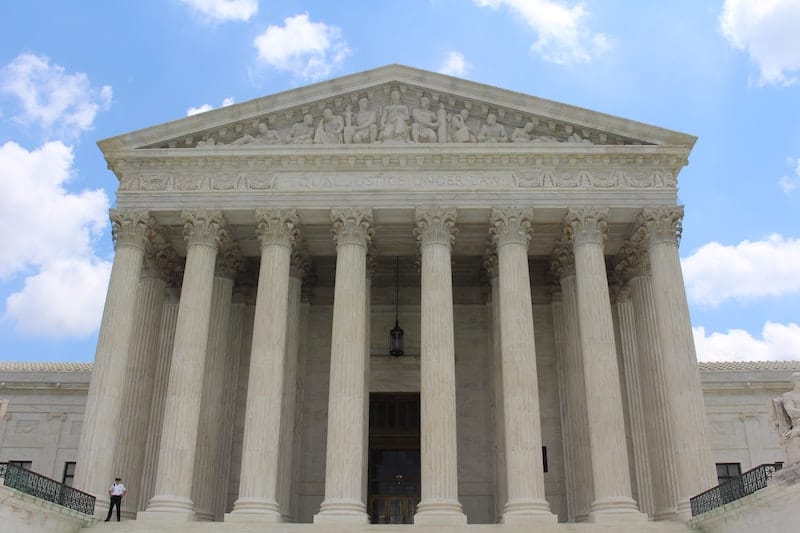
22 Jan Can I Refuse To Answer Questions At A Deposition?
Do I Have To Answer Questions At A Deposition?
Taking part in any legal proceedings can be very stressful, even those that happen outside a courtroom, such as a deposition. Can you refuse to answer questions at a deposition, do you have a choice on which questions to answer or to I even have to attend a deposition? Doing research to better understand what a deposition is, how the proceedings work and what your options are can help alleviate some of that anxiety.
Can I refuse to answer questions at a deposition? In most cases, a deponent cannot refuse to answer a question at a deposition unless the answer would reveal privileged or irrelevant private information or the court previously ordered that the information cannot be revealed (source).
However, there are certain types of questions that do not have to be answered. Your attorney should always be present during any type of legal questioning and they should have prepared you for the deposition proceedings and what questions may be asked of you and what should and should not be answered. These questions usually fall in three categories:
Privileged Information – Confidential conversations that take place between a doctor (including psychiatrists and psychologists) and a patient, attorney and client or a confession to a priest. Privilege can vary by state, for example, some states have accountant/client privilege so it is important to know the law in your state as it pertains to the proceeding.
Private Information – Information pertaining to a person’s health, sexuality or religious beliefs (including your own). The opposing counsel will have to explain how the answer will pertain directly to the case to compel an answer.
Irrelevant Information – Questions that are improper or have no bearing on the outcome of a proceeding. Your attorney should object on your behalf or advise you not to answer but if not you may object yourself. (source)
Even if you or your attorney objects to a question, a judge in court can still overrule your objection and compel you to answer. Remember just because an answer is unsettling to you does not mean it does not have a direct bearing on the case. Here are a few general principles to keep in mind when being deposed and deciding on how best to answer questions rather than outright refuse.
- Listen carefully to the question and how it was asked. You can pause to fully formulate your answer. If a question seems vague or unclear you can ask for clarification and explanation.
- If the opposing attorney is inappropriate in demeanor or appearance, point out the inappropriate behavior on the record. Some attorneys can use inflammatory tactics to try to draw out information that may be incriminating, irrelevant or covered by privilege.
- Try to answer questions with a simple yes or no, try not to give supporting information that is not directly related to the question.
- Only give factual information you know. It is okay to say “I don’t know” if you are asked about the actions of another individual or don’t have direct knowledge of an event or just don’t know the correct answer.
- Be cautious in answering questions following an objection by your attorney. They are there to help protect your best interest.
- Lawyers may phrase a statement with a preceding comment that is factually untrue or with a fact that is in dispute; make sure to point out the inaccuracy. Similarly, do not let an attorney paraphrase your statements unless they are completely accurate.
- Be careful responding to questions that start with “Isn’t it true…”, “Wouldn’t you agree…” or other preamble proposing to answer a question for you.
- Most importantly, always be truthful. If you lie or falsify an answer, you could be charged with perjury later (source). Lying can be extremely detrimental to the outcome of the proceeding not to mention the damage done to your credibility and reputation.
CONSEQUENCES OF REFUSING TO ANSWER DEPOSITION QUESTIONS
 What are the consequences of refusing to answer questions that are not covered by privilege? “If a deponent refuses to answer a question at a deposition, and the answer is not protected by a privilege or otherwise as set forth in the state’s rules, the deposing attorney may file a motion with the court to compel a response. They may even obtain monetary sanctions against the deponent for a refusal to answer (source).” Monetary sanctions can include but are not limited to court costs and attorney fees. Refusing to answer questions while under oath, regardless of the reason can cause others to doubt your motivations and credibility.
What are the consequences of refusing to answer questions that are not covered by privilege? “If a deponent refuses to answer a question at a deposition, and the answer is not protected by a privilege or otherwise as set forth in the state’s rules, the deposing attorney may file a motion with the court to compel a response. They may even obtain monetary sanctions against the deponent for a refusal to answer (source).” Monetary sanctions can include but are not limited to court costs and attorney fees. Refusing to answer questions while under oath, regardless of the reason can cause others to doubt your motivations and credibility.
WHAT IF I REFUSE TO BE DEPOSED
Subpoenas are often issued by the judge that is presiding over the case, the clerk of the county where the litigation takes place, a private lawyer that is representing one party involved in the matter or a government lawyer if these agencies are participating. The document itself is presented to the person, and his or her attendance is mandatory. Any issues with him or her showing up could lead to contempt of court, fines or similar consequences. This means understanding how to respond is important. If additional communication or actions are needed, it may be necessary to hire a lawyer as well (source).
Some compensation is possible when the distance to attend a deposition is considerable. This means the person that must attend through the subpoena is compensated for travel costs and is often provided an attendance fee. If the judge has requisitioned the document for the person, he or she may be the person at the meeting. It is at this meeting that the served individual should explain why the subpoena is invalid, has a detail incorrect or should be altered or removed from the case. If the person feels his or her presence should not be part of the proceedings, the courts still need to be contacted about a challenge or this situation (source).
It’s difficult to know what exactly the ramifications of refusing to be deposed could be. The consequences will always differ depending on how directly involved you were with the incident leading to the deposition. It will also hinge on whether you are being legally compelled to attend a deposition. The only certain course of action to take is to review all the documents you receive thoroughly and consult legal counsel if you need help interpreting them in order to avoid any potential legal, economic, or social fallout (source).

WHAT IS THE PURPOSE OF A DEPOSITION
Let’s back up just a moment and explain exactly what a deposition is and why they take place. According to dictionary.law.com “A deposition is part of permitted pre-trial discovery (investigation), set up by an attorney for one of the parties to a lawsuit demanding the sworn testimony of the opposing party (defendant or plaintiff), a witness to an event, or an expert intended to be called at trial by the opposition.” In its simplest form, a deposition is a question and answer session taking place under oath. They are useful as a “dry-run”for those expected to testify in a trial but also to the counsel to understand not only what a party may know but how they intend to answer questions. They are an invaluable tool to create a trial strategy.
Now, even though a deposition takes place out of court without a judge, it is still a witness testimony and is taken in the presence of a court reporter and attorneys so it is considered sworn testimony, no matter how informal the setting may seem. Everything said is transcribed and can be used in court. If the case does go to trial, the deposition of a witness can be used during a trial if they are not available to testify in court and can be entered into evidence.
PREPARING FOR A DEPOSITION
Preparation and professional demeanor are key to providing effective depositions in legal proceedings. Always meet with counsel prior to a deposition so they can explain the process and prepare for the types of questions that will be asked. Your attorney also should be present for all depositions to protect your interests if questions are worded inappropriately, are vague or could be challenged later when a judge determines the line of questioning was not applicable or was presented improperly (source).
DURING THE DEPOSITION
Next, the attorneys begin to question the deponents in what is called a direct examination. Subsequently, other attorneys present have an opportunity to cross-examine the witness. Either party may object to a question throughout the deposition on the basis of privilege or relevance. Deponents are allowed to modify their answers in review; however, the opposing attorney will make note of that during the examination in a trial. The attorneys will ask questions about the incident to fully understand the witness’ perspective and recollection or level of involvement. A deponent’s task is to answer questions simply, truthfully, and straightforwardly throughout the entire deposition (source).
AFTER THE DEPOSITION
After the deposition is concluded, the court reporter will provide a transcript to each party so that all participants have identical information. One can expect each side to exploit certain details with respect to their stance. Be aware that the same information can be interpreted in different ways. Depositions are extremely important in working up a case in preparation for either trial or settlement.
Thank you for reading, click here to find more useful deposition information.






